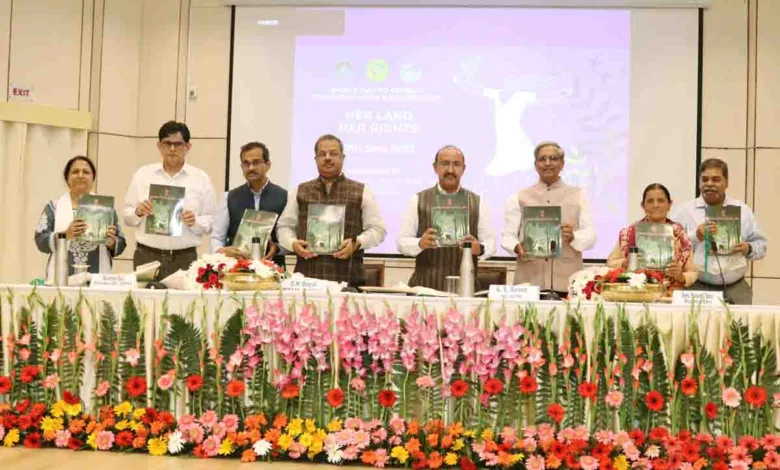MoEFCC releases National Working Plan Code-2023 for scientific forest management

Sunday, 18 June 2023 | PNS | DEHRADUN
The Ministry of Environment, Forest and Climate Change has released the National Working Plan Code-2023 for scientific management of forests and evolving new approaches. It was released by the director general of Forests and special secretary, MoEFCC, Chandra Prakash Goyal at the event organised by Indian Council of Forestry Research and Education to mark the World Day to Combat Desertification and Drought on Saturday.
The working plan is the main instrument through which the scientific management of forests is being achieved in India. The National Working Plan Code which was first adopted in 2004 with a subsequent amendment in 2014 brought uniformity and acted as the guiding principle for the preparation of the working plan for scientific management of different forest divisions of the country. The National Working Plan Code-2023 will act as a guiding principle for State Forest departments in preparation for the working plan for different forest divisions in the country. It deals in detail with the essentials of forest management planning, incorporating the principles of sustainable management of forests. This includes extent and condition of forest and tree cover; maintenance, conservation and enhancement of biodiversity including wildlife, forest health and vitality, conservation and management of soil and water resources, enhancement of forest resource productivity, maintenance and enhancement of social, economic, cultural and spiritual benefits, and providing the appropriate policy, legal and institutional framework. For the first time, the National Working Plan Code-2023 has prescribed State Forest departments to engage in continuous data collection and its updation in a centralised database.
Speaking at the event, Goyal stressed on achieving land degradation neutrality through problem-solving, strong community involvement and cooperation at all levels. He emphasised the promotion of public awareness and community participation to strengthen implementation of UNCCD strategies for sustainable land management at various levels.ICFRE director general Arun Singh Rawat highlighted that nearly 25 per cent area degraded globally is affecting 3.2 billion people around the world. Land resources have undergone degradation and suffered loss due to huge anthropogenic pressure. He suggested gender equality and a common contribution for sustainable land management issues, and support to advance land rights for women and girls around the world.





